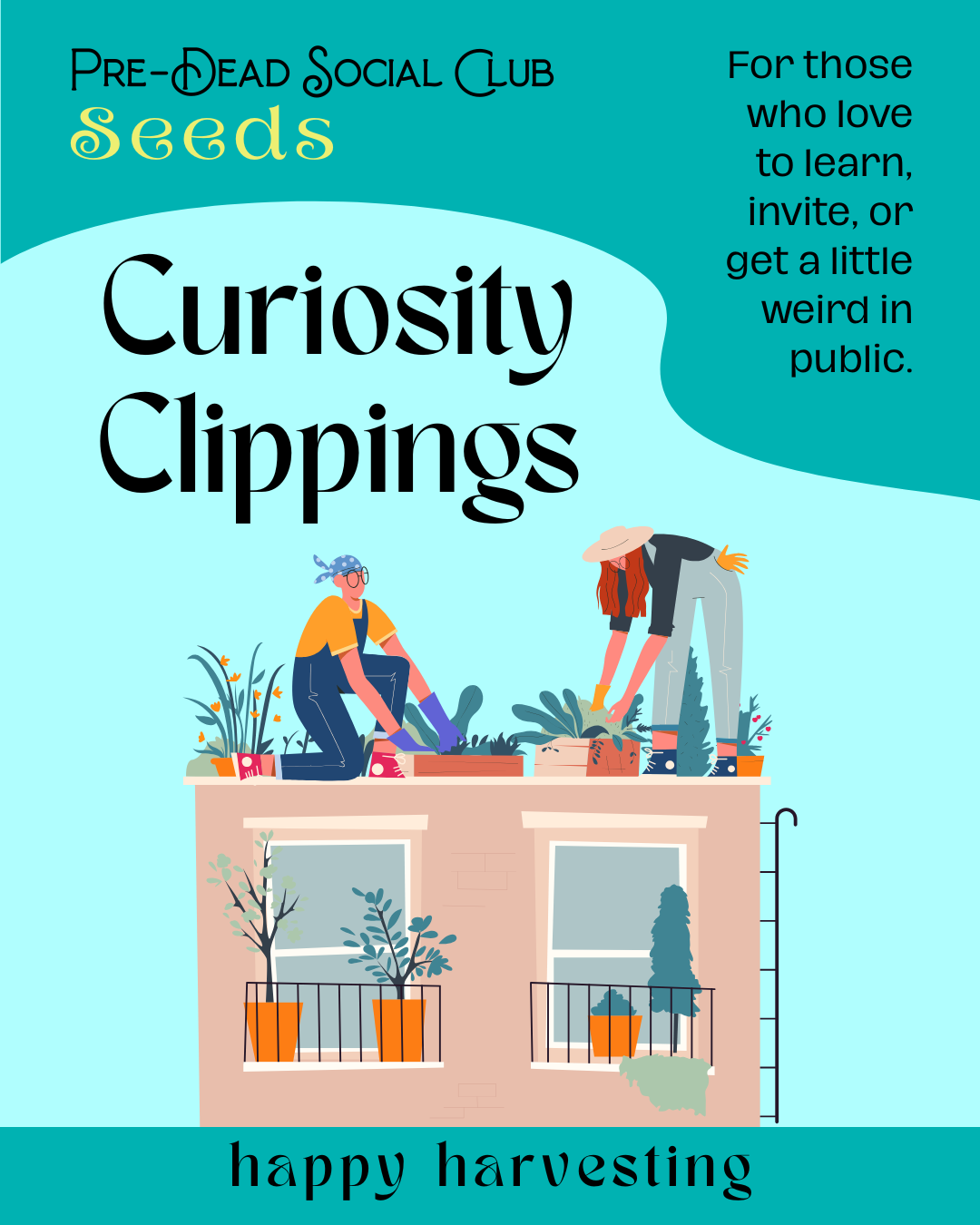Conversations Starters
Plant the Conversation
Talking about death and gardening have a lot in common. We spend so much time cogitating about how it might go that we bury the opportunity to even begin (yes, that’s a death pun).
Breaking ground on a conversation about dying is really about the seeds.
Whether it’s with a friend, family member, or one of the -ologists (you know…the specialists focused on keeping us alive, but not always great at talking about our final growing season), not every seed will germinate. Conditions change. Timing matters.
And yet we expect a lot—from the seed, the soil, and ourselves as the gardener.
Add in the fact that we’re just mortals, mor-tilling our emotional soil, and no wonder it’s hard to start.
But what if we approached it like beginner gardeners?
Think back to grade school—planting seeds with curiosity and no pressure to get it perfect. The point wasn’t to force growth, but to observe: What helped it come to life?
This month’s Small Steps are seed starters—maybe even wildflowers.
Some you’ll plant for yourself. Some you’ll toss gently toward someone else. Some will sprout. Some won’t. And that’s okay.
Scatter some seeds. See what happens.
You might be surprised by what takes root—and how much it grows.
Ready to start mor-tilling?
Experiment with these variety seed packets.
Create a Death Playlist
Include songs you’d want at your memorial or vigil—and share the “why” behind your choices.
Start a Visual Obituary
Choose your favorite photo (or two) you’d want used “someday.” Ask loved ones what photo they’d choose for themselves.
Watch a Documentary or Film About MAiD or End-of-Life Choices
Invite someone to watch with you, like How to Die in Oregon or The Farewell, and talk about what resonated.
Bring a Book to Coffee
Gift or recommend a book like Being Mortal, The Art of Dying Well, or The Gentle Art of Swedish Death Cleaning and say, “This made me think...”
Start a “To Be Read When I’m Gone” Letter
Start now, even if you never give it away. It may spark something deeper.
Draw a Map of Your Life
Include meaningful places, homes, transitions, and turning points. It’s a memory map and a legacy tool.
Start a “Not Dead Yet” Bucket List
Frame it with humor and intention. Ask: What do you still want to do before you die?
Create a “Do Not Read/Play This at My Funeral” List
Have fun with it, then pivot to what you do want.
Show Off Your “Good to Go” Folder
Whether it’s got two pages or 20, let it be a conversation-starter and not just a binder.
Make a List of Who Gets What
Choose a few prized possessions and jot down who should have them—and why. Talk about it.
Communicate Who Will Speak for You
Tell loved ones who your health care proxy is and why. Bonus points if you all meet to discuss it.
Define “Quality of Life” in Your Words
Write a paragraph about what makes life worth living for you. Share it with someone.
Use a Celebrity Death as an Opener
“Did you see how [celebrity]’s family handled their death?” Use it to segue into your thoughts.
Use a Show, News Story, or Podcast as an Excuse
“This episode got me thinking: what would I want in that situation?”
Start a Permission Slip Journal
What do you give others permission to do (or not do) when you’re dying or gone?
Say “If I Go First…”
Start a list or note: passwords, memorial music, social media logins, caregiving wishes.
Ask Someone You Trust: “Will you help me with this?”
Even if they don’t know what “this” is yet, curiosity opens doors.
Have Coffee with a Death Doula
Get curious. Learn what they do and let that normalize talking about dying.
Host a Conversation Game Night
Use decks like GoWish, Death Deck, or The Hello Game to make it social, not somber.
Bring Someone to a Death Over Drinks or Death Over Coffee Event
Share the die-a-logue, laughter, and insight that can follow.





